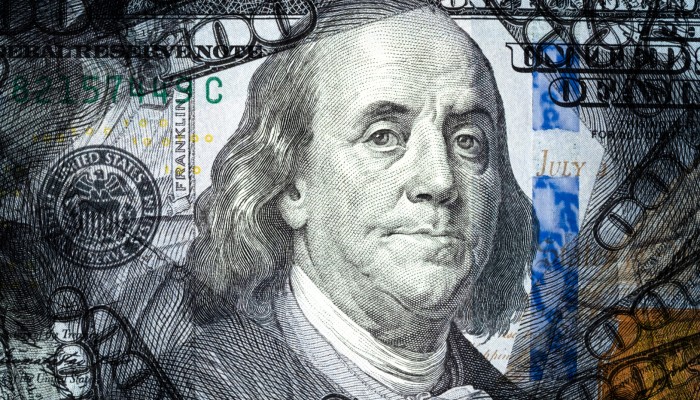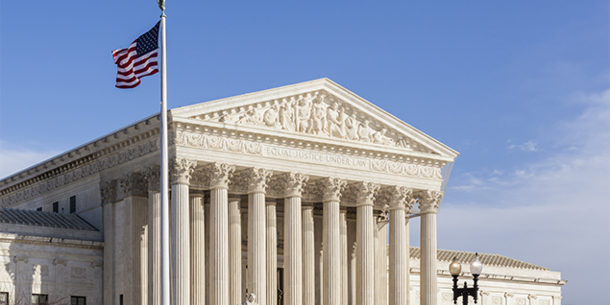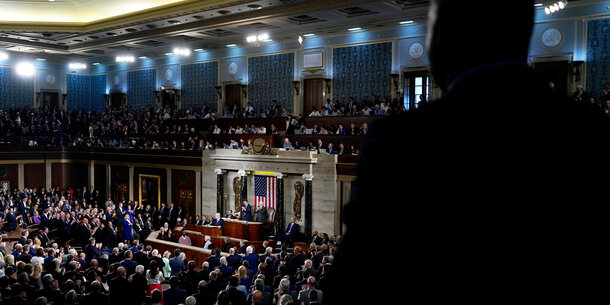The Supreme Court may be closed for in-person oral arguments due to Covid-19, but make no mistake: it is still making decisions and shaping the law. However, with the pandemic dominating news stories, the media has overlooked recent developments in campaign finance cases, such as the Court’s refusal last month to hear a case called Doe v. Federal Election Commission, thus leaving in place a pro-disclosure ruling from a lower court. This move by the Court marks a positive step toward more transparency in elections and against the use of straw donors.
Political spending in the United States has been subject to various disclosure requirements since the enactment of the Publicity Act of 1910. But it wasn’t until the 1970s that one federal agency had sole oversight of reporting campaign finance in a clear way to the public. That happened during post-Watergate reforms with the creation of the Federal Election Commission, which promotes transparent campaign spending as one of its core missions.
Over the years, litigants have hurled different constitutional arguments against disclosure requirements for political spending. However, ever since its 1976 ruling in Buckley v. Valeo, the Supreme Court has consistently held that transparent political spending served three distinct governmental interests: informing voters, fighting corruption, and preventing people from circumventing the law. In other words, the Court has recognized that elections require that voters know who is trying to influence them. The justices have also found that that transparency requirements lessen the risks of corrupt behavior and that publicly reporting political expenditures ensures that political spenders comply with contribution limits.
The Supreme Court reaffirmed that disclosure requirements are constitutional in Citizens United v. FEC in 2010 and McCutcheon v. FEC in 2014.
Despite the string of wins for transparency at the Supreme Court, this has not stopped political spenders from trying to hide their identities. The Doe case was another example of this secretive behavior. In essence, it was about “a mystery donor’s attempt to maintain secrecy around a $1.7 million donation to a super PAC whose spending was meant to influence the 2012 election,” as described by the Campaign Legal Center. Or as FEC Chair Ellen Weintraub explained in a tweet, “Key players in a straw-donor scheme involving @ACUConservative [American Conservative Union] had sued @FEC to keep their names forever secret.” In plain English, a straw donor claims in official documents to be the source of a contribution when actually they are passing on money from some other source, who stays hidden.
The super PAC at issue was the Now or Never PAC, which had the goal of “electing men and women to Congress who have demonstrated a desire to immediately work to Balance the Federal Budget.” The case started when the accountability watchdog organization Citizens for Responsibility and Ethics in Washington (CREW) filed a complaint with the FEC seeking information on the source of $1.7 million in donations to the Now or Never PAC during the 2012 election season. Now or Never reported the $1.7 million as donated by the American Conservative Union (ACU), the organization that runs CPAC (a huge gathering of conservatives) every year. But CREW suspected that the ACU was merely a conduit for money it had gathered from other, secret donors — or, in other words, that ACU acted as a straw donor. In total, Now or Never PAC spent $7.7 million during the 2012 election season.
Under federal campaign finance law, no one is allowed to give money in a federal election through a straw donor. As the FEC explains, “Reimbursing someone for a contribution or otherwise contributing in the name of another person can result in substantial civil penalties and jail time.”
For example, before being pardoned by President Trump, author and filmmaker Dinesh D’Souza received a felony conviction after he pled guilty to using straw donors because he had others give money to a candidate for Senate with the promise that he would pay them back. This allowed him to give more than was allowable to the Senate candidate. Thus, the allegation that straw donors were involved in funding the Now or Never Super PAC raised a serious legal issue.
In a 2017 settlement, the FEC fined the ACU $350,000 for its role in moving the donations to Now or Never PAC. However, other parties, including the original donors, refused to be named and instead sued the FEC in Doe v. FEC. They argued that the FEC’s disclosure of their names is “an arbitrary and capricious decision, and an abuse of discretion because such action violates the First Amendment.”
In the federal district court in Washington, Judge Amy Berman Jackson ruled that the disclosure does not in fact violate the First Amendment. The John Does appealed to the D.C. Circuit, which in a 2–1 decision also ruled against the John Does, agreeing with the district court that “Citizens United v. FEC . . . forecloses their argument.” Finally, the Supreme Court denied yet another appeal, ending the case and the attempt to hide the true identities of the donors.
After the Supreme Court declined to consider the case, the district court’s subsequent response released the FEC to at long last state the truth. In turn, FEC Commissioner Weintraub released an unredacted document, which said:
“Here’s what we know happened. Incentive Discretionary Trust (‘IDT’), a trust created and owned by unknown parties, through its trustee, Charles Harris, established the ironically named Government Integrity LLC (‘GI’) in September 2012, and was its sole owner. On or about Oct. 31, 2012, IDT transferred $2.5 million to GI. GI, through its lawyer, James Thomas, immediately transferred $1.8 million to ACU (a 501(c)(4) tax-exempt organization). ACU immediately turned around and sent $1.71 million to Now or Never PAC, whose treasurer was none other than GI’s lawyer, James Thomas.”
Now, ironically indeed, the public knows that the money that went through ACU came through a trust. Where that money in the trust came from is still a bit of a mystery. But at least the public gets a glimpse of a link in the daisy chain of undisclosed political money. And perhaps this case and the $350,000 fine will warn election spenders in 2020 against using straw donors to evade campaign finance disclosure laws.
The views expressed are the author’s own and not necessarily those of the Brennan Center.



